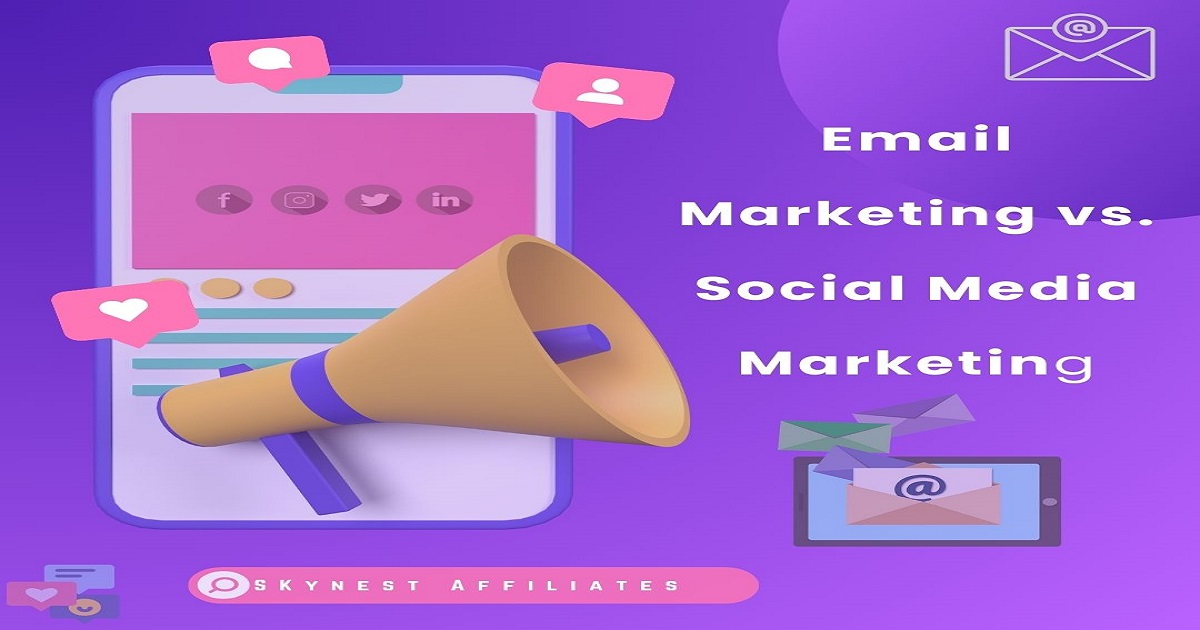In the digital age, where technology drives marketing strategies, two prominent contenders vie for the attention of businesses seeking effective ways to engage customers: email marketing and social media marketing. Both these methods possess unique characteristics and play pivotal roles in modern marketing campaigns. While email marketing has been around for decades, social media marketing has emerged as a dynamic force in recent years. This article aims to explore the strengths and weaknesses of both email marketing and social media marketing, helping you determine which approach suits your business better.
Understanding Email Marketing
Email marketing is a time-tested, direct communication channel used by businesses to interact with their target audience through emails. The concept is simple – companies gather email addresses from potential customers and use them to send out promotional content, newsletters, and personalized offers. Over the years, email marketing has evolved, offering sophisticated automation tools, segmentation capabilities, and personalized messaging, making it an indispensable part of any comprehensive marketing strategy.
Advantages of Email Marketing:
- Targeted and Personalized Communication: Email marketing allows businesses to segment their audience based on demographics, behavior, and preferences, enabling personalized content delivery. This targeted approach significantly increases engagement rates and conversion rates.
- Direct and One-on-One Connection: Emails create a direct line of communication with customers, bypassing the noise and distractions of social media feeds. This direct connection fosters a sense of trust and loyalty between businesses and their customers.
- High ROI and Cost-Effectiveness: Email marketing is renowned for its high return on investment (ROI). With low overhead costs, it presents an affordable option for businesses of all sizes to reach their target audience effectively.
- Conversion and Lead Nurturing: Email campaigns are excellent for guiding leads through the sales funnel, providing relevant information, and nurturing them until they are ready to make a purchase.
Challenges of Email Marketing:
- Deliverability and Spam Filters: Getting emails delivered to the inbox can be challenging due to spam filters, leading to potential messages being overlooked or marked as spam.
- Subscriber Fatigue: Over-emailing can lead to subscriber fatigue, causing people to unsubscribe or disengage from the brand altogether.
Understanding Social Media Marketing
Social media marketing revolves around using various social media platforms to engage and interact with a brand’s audience. It involves creating and sharing content, running ads, and fostering conversations with followers. Social media has revolutionized the way businesses connect with their customers, offering a two-way communication channel and fostering brand awareness on a global scale.
Advantages of Social Media Marketing:
- Widespread Reach and Brand Visibility: Social media platforms have billions of active users, allowing businesses to reach a vast audience and increase brand visibility significantly.
- Real-Time Engagement: Social media facilitates instant communication, enabling businesses to respond to customers’ queries, comments, and concerns in real-time, fostering a strong sense of community.
- Viral Marketing Potential: Engaging content on social media can quickly go viral, exponentially increasing brand exposure and attracting new customers.
- Targeting Capabilities: Social media platforms offer advanced targeting options, enabling businesses to focus their advertisements on specific demographics, interests, and behaviors.
Challenges of Social Media Marketing:
- Algorithm Changes: Social media algorithms are constantly evolving, making it challenging for businesses to maintain consistent organic reach and engagement.
- Limited Control: Businesses rely on third-party platforms for their social media presence, which can be risky if the platform’s policies or algorithms change unexpectedly.
Email Marketing vs. Social Media Marketing: Which is Better?
Now that we’ve explored the strengths and weaknesses of both email marketing and social media marketing, let’s discuss which approach may be better suited for your business:
- Customer Relationship Building: If your goal is to build stronger, personalized relationships with your audience, email marketing is an excellent choice. It allows you to send targeted messages directly to customers’ inboxes, fostering a sense of exclusivity and personalized attention.
- Lead Generation and Brand Awareness: Social media marketing is ideal for businesses seeking to expand their reach, increase brand awareness, and attract new leads. Its potential for viral content and wide audience reach can rapidly propel your brand into the limelight.
- Conversion and Retention: When it comes to guiding leads through the sales funnel and nurturing customers post-purchase, email marketing excels with its ability to provide tailored content that encourages conversions and fosters customer loyalty.
- Cost-Effectiveness: Email marketing generally offers a higher ROI and lower costs, making it a suitable option for businesses on a budget.
Conclusion:
In conclusion, both email marketing and social media marketing play crucial roles in modern marketing strategies. The decision between the two depends on your specific business objectives, target audience, and available resources. For many businesses, a combination of both email and social media marketing yields the best results, as they complement each other’s strengths.
Remember, successful marketing hinges on understanding your audience and delivering valuable, relevant content through the channels they prefer. By leveraging the unique advantages of both email marketing and social media marketing, you can create a robust and comprehensive marketing strategy that drives engagement, conversions, and long-term customer relationships.




